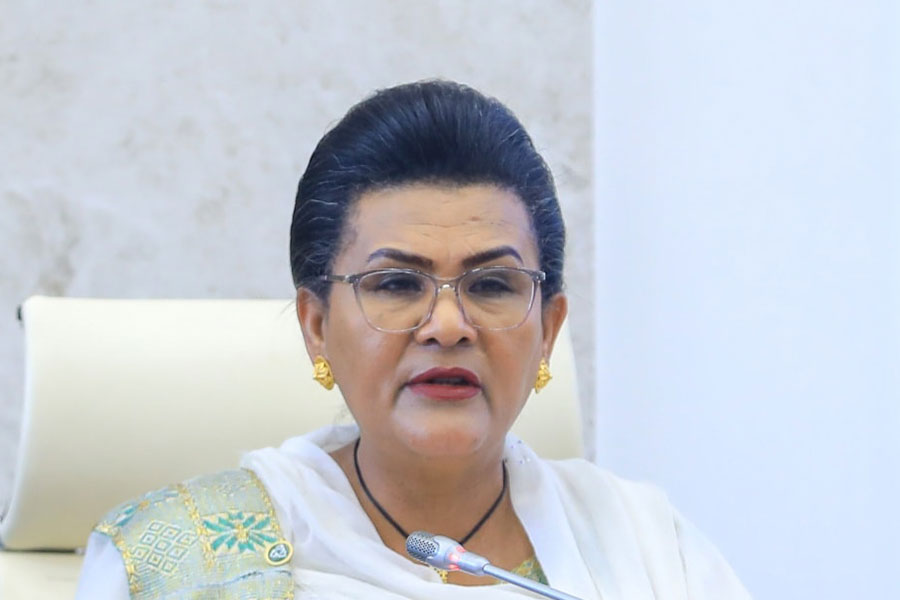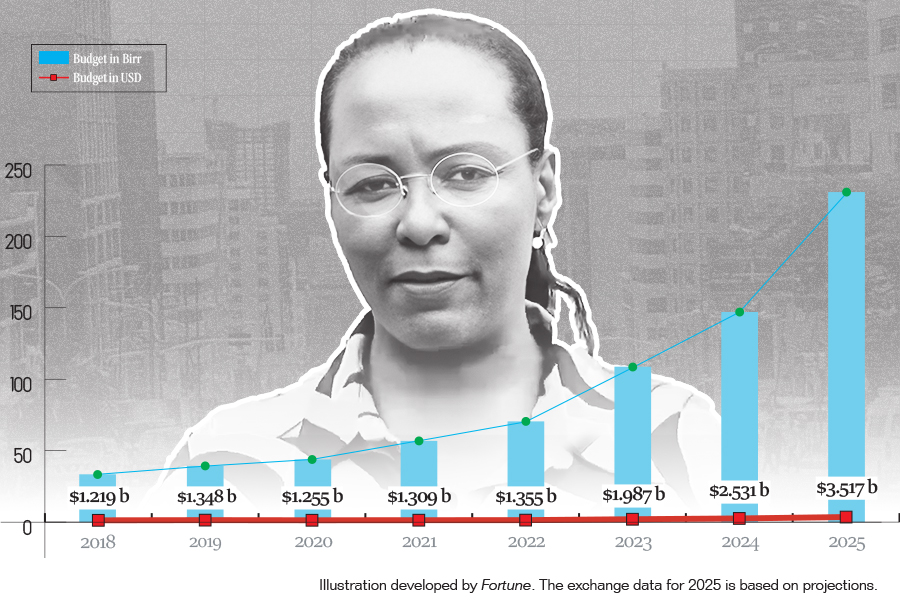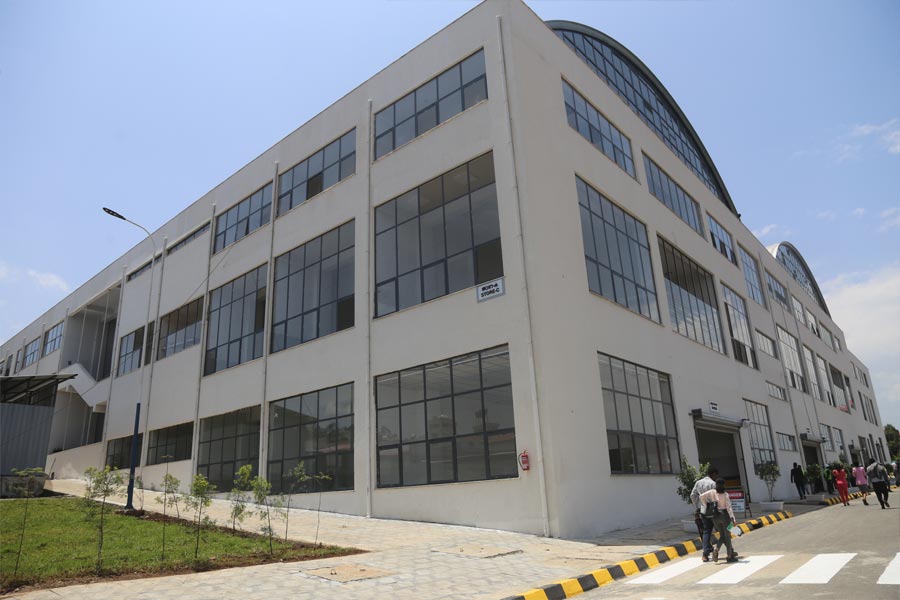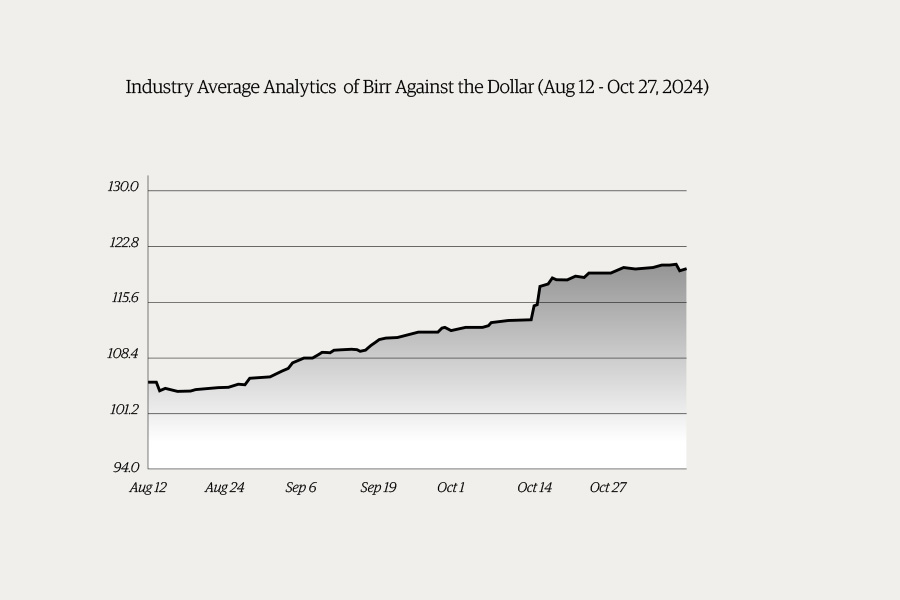
Fortune News | Jun 29,2025
Melaku Andualem spends his retirement days reading books, watching television and keeping up with the latest developments.
The grandfather of six spent close to four decades working for several government institutions. His career began in his early 20s as a high school teacher with a monthly salary of 225 Br.
He recalls the simplicity of life back then and how he was able to live a good life on this income.
“My salary was one of the highest at the time,” said Melaku. “I had a good lifestyle and savings.”
Later on, he got married, built a home and fathered four children. By the end of his career, 22 years ago, his salary had grown to 1,400 Br a month.
In 1997, Melaku retired at the age of 50 and was entitled to a pension. Throughout Melaku’s employment over the years a certain amount of his salary had been deducted so that he would have retirement income in his later days.
Calculated based on the salary and the number of years he served, he was entitled to half of his last salary, around 700 Br, as a pension.
Twenty years down the line he still collects his pension at the beginning of every month from the nearest postal office, one of several institutions where a pension is paid by the state.
The 73-year-old Melaku is one of the 720,000 pensioners that are currently getting paid through the social security scheme.
The scheme, common around the globe, provides a means for individuals to accumulate savings over their working life so that they will have an income when they retire.
In Ethiopia, the law that provided the foundation for the establishment of the Ethiopian pension scheme was passed in 1960 and went through several amendments over the years.
Initially, the scheme covered only civil servants and the military. Private organisation employees were excluded from the scheme.
Private organisations, on the other hand, provided a scheme similar to the government pension. They deducted a certain percentage of their employees’ salaries and paid back the money in the form of a lump sum upon the employee’s departure.
However, in 2011, the private employee’s pension fund scheme, which made the state the sole body that has the right to collect a pension from private organisation employees, was established.
Accordingly, two separate agencies became responsible for the implementation of social security in Ethiopia.
The Public Servants Social Security Agency handles the pension funds of around 2.1 million government employees, excluding the military and police force. The other entity, the Private Employees Social Security Agency manages the pensions of 1.5 million employees working in around 187,000 private organisations.
The system works similarly in both schemes where the employer contributes 11pc and employees chip in seven percent of salaries, making the total contribution for pensions 18pc of gross salaries every month.
However, for the military, 32pc of gross salaries is contributed to a pension, of which the state covers 25pc. The two agencies have a combined workforce of around 5,000 employees and over 140 branches to carry out the collection of pension contributions.
Pension contributions from government employees are made directly to the Agency by the employer, while private employee’s pensions are collected when the organisations pay their tax to the tax authorities who then transfer employee’s pension funds to the Agency.
The institutions have continuously been gathering pension contributions and have accumulated immense capital. The country’s social security funds stood at 110 billion Br at the end of the last fiscal year.
Out of the total value, 76 billion Br is from public servants' pension contributions, while 34 billion Br was collected from private employee’s pension funds within the eight years of the Agency's existence.
The combined funds have reached close to one-third of the country’s budget in the current fiscal year, more than double the level of deposits at Awash Bank S.C., the largest private bank.
There are countries where pension funds can reach up to 50pc of the country’s GDP. Since pension funds are collected every month and are paid years later when individuals retire, the accounts accumulate vast amounts of money.
Pensions funds are also used as a great source of capital for investments. As pensioners do not immediately need the funds, the money can be invested to obtain the best possible rates of return.
The pension funds are among the largest source of investment capital in developed countries. In the United States, the 20 largest pension funds hold about one-tenth of the equity capital of publicly-owned companies.
In Ethiopia, the law allows the investment of pension funds. However, it limits the area of investment to only treasury bonds and gives the Ministry of Finance the power to identify other profitable and reliable investments.
But so far, no new areas have been identified, and the money is only used to buy treasury bills, which have a lower return.
When the law was passed, there were not a lot of investment opportunities for investing such fund, according to Gemechu Weyuma, director-general of the Private Employees Social Security Agency.
“Besides, nobody was willing to take the risk,” Gemechu said.
The Agency, which paid half a billion Br for 18,000 beneficiaries in the past fiscal year, usually buys treasury bills with a maturity date of 91 days.
The Agency offers 99.70 Br to the government and receives 100 Br in return, earning an interest rate of 0.3pc. The interest rate, approximately a one percent annualized rate, is offered in an economy that has had an average inflation rate of 15.5pc over the pastdecade and a half resulting in negative real interest rates, the rate of interest after allowing for inflation.
In the past fiscal year, the Agency bought around 113 billion worth of treasury bills, earning a profit of about 330 million Br.
The public servant agency, which only uses its funds to buy treasury bills, gained a profit of 782 million Br as well in the past fiscal year.
The agencies are also not allowed to save their money in commercial banks, and the funds can only be deposited at the National Bank of Ethiopia.
Currently, the social security fund is being used as a means to fill the budget deficit, according to Daba Orya, director-general of the Public Servants Social Security Agency, who spoke to the Amharic daily Addis Zemen last month.
“Pension funds being only invested in treasury bills are continuously losing value,” said Daba.
Gemechu also shares Daba’s concern and argues an alternative means has to be adopted.
“At the current rate of inflation," said Gemechu, "the money will be worthless by the time pensioners reach the age of retirement."
Investment areas of the funds have to be widened, creating a means by which pensioners are paid inflation-adjusted rates when the time of their retirement comes, according to Gemechu.
In September 2019, headline inflation, an indicator of the cost of living, reached 18.6pc. The rate is a record high next to the 22.2pc rate that was recorded in 2014.
Endalkachew Molla, a former parliamentarian who is now a pensioner, urges the investment of such funds.
“There are people who earn less than 600 Br from pensions,” said Endalkachew. “The pension doesn’t only have to be saved from losing its value but also should be put to better use to help these low-income pensioners.”
However, Kassahun Follo, president of the Confederation of Ethiopian Trade Unions, believes the reservation of the funds was necessary.
“Enough capital is accumulated so far, and a certain amount of money has to be allocated,” said Kassahun, who is also a board member of the Private Employees Social Security Agency.
He believes that now the time has come for investing such funds. But he notes that a lot of preparatory work needs to be done from building the institutional capacities of these agencies to set up strong regulations that govern the investments before investing the funds.
In the past, there have been recorded times where pension funds went bankrupt globally due to bad investments.
During the 2008 financial crisis, many pension funds across the world that were invested in stock markets lost value, since stock values fell lower than the value they were purchased at.
Experts in the area believe that pension funds should obviously be invested in better performing assets, and the real discussion rather should be about what regulations to follow.
“While banks are formed with a subscribed capital of half a billion Birr, the social security agencies are sitting on 110 Billion Br,” said Habib Mohammed, a financial expert with a decade and a half of experience in the sector.
He strongly argues for the diversification of pension fund investments from treasury bills. The expert also does not see the reason why the sector has to be only reserved for the government.
Unlike Ethiopia, where the government is the only one that has the power to collect such funds, in other countries pension funds can also be managed and administered by private companies.
By setting up regulations with investment caps, liquidity ratios and diversified portfolio requirements, the state can ensure the funds are put to good use by both agencies or other private pension fund administrators that could pop up, according to Habib.
Fikiru Desalegn, who served as general manager of the then Social Security Authority for nine years, argues that the funds have been abused and exploited for years and says that there was a time when the social security funds were deposited at the Commercial Bank of Ethiopia at zero interest.
Though the government fears that investment could collapse, there are many African countries that used the pension funds to invest in the areas of real estate, banking and insurance and became successful, according to Fikiru.
The funds and reserves of South Africa’s Government Employees Pension Fund, which had an investment portfolio of 124 billion dollars in 2017, grew at 10.2pc a year for the last decade.
“The issue of pension fund investment has continuously been ignored and suppressed,” Fikru said. “This needs to be discussed now."
Gemechu, director-general of the social security agency for the public servants, says efforts are underway to diversify the investment areas.
“We're currently studying the areas where investments get the highest return," said Gemchu. “We'll soon present our findings to the Ministry of Finance."
The new economic reform also moves to liberalise the financial sector. But the details of the reform on the pension fund investment and the degree of relaxation of the area are still yet to be unveiled.
With the median age of Ethiopia being around 18 years and 60pc of the population under the age of 25, the number of people that join the workforce will continue to increase, in turn increasing the accumulation of the funds.
The new civil service proclamation amendment made at the end of the last fiscal year is set to bring adjustments to pension payouts.
Melaku, who got 700 Br in a monthly pension payment twenty years ago, now gets around 1,700 Br after several revisions. He says despite the increase, the money still does not amount too much.
"I was able to do a lot more with the 700 Br than the 1,700 Br I get now," said Melaku.
Melaku also prefers the money to be invested and generate revenue to help the pensioners like him.
PUBLISHED ON
Oct 12,2019 [ VOL
20 , NO
1015]

Fortune News | Jun 29,2025

Radar |

Fortune News | Jul 21,2024

Fortune News | Feb 24,2024

Money Market Watch | Nov 09,2024

Dec 22 , 2024 . By TIZITA SHEWAFERAW
Charged with transforming colossal state-owned enterprises into modern and competitiv...

Aug 18 , 2024 . By AKSAH ITALO
Although predictable Yonas Zerihun's job in the ride-hailing service is not immune to...

Jul 28 , 2024 . By TIZITA SHEWAFERAW
Unhabitual, perhaps too many, Samuel Gebreyohannes, 38, used to occasionally enjoy a couple of beers at breakfast. However, he recently swit...

Jul 13 , 2024 . By AKSAH ITALO
Investors who rely on tractors, trucks, and field vehicles for commuting, transporting commodities, and f...

Oct 25 , 2025
The regulatory machinery is on overdrive. In only two years, no fewer than 35 new pro...

Oct 18 , 2025
The political establishment, notably the ruling party and its top brass, has become p...

Oct 11 , 2025
Ladislas Farago, a roving Associated Press (AP) correspondent, arrived in Ethiopia in...

Oct 4 , 2025
Eyob Tekalegn (PhD) had been in the Governor's chair for only weeks when, on Septembe...